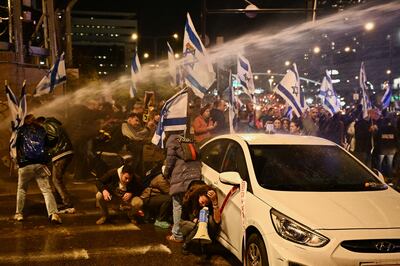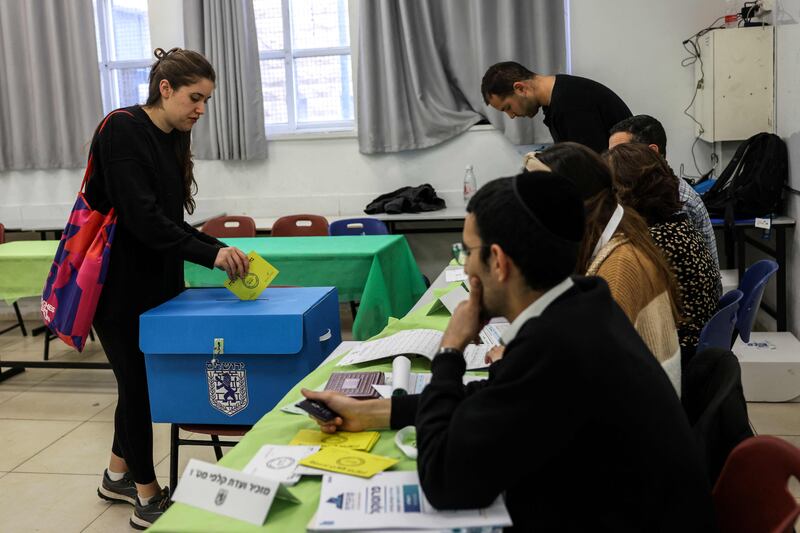Live updates: Follow the latest news on Israel-Gaza
Voters in Israel headed to polling stations on Tuesday for twice-postponed local elections that are expected to reflect public sentiment after nearly five months of war in the Gaza Strip.
More than seven million people are eligible to vote in the elections for local councils across most of Israel, in settlements in the occupied West Bank, Jerusalem and parts of the annexed Golan Heights.
The public will elect mayors and local councils in 197 towns and cities, as well as representatives for 45 regional councils.
Elections are not being held for 11 municipalities and regional councils along the northern border with Lebanon and in southern areas adjacent to Gaza.
Nearly 180,000 people have had to move from these areas because of the Gaza war and exchanges of fire across the Israel-Lebanon border between the military and Hezbollah.
Israel's first local elections since 2018 were supposed to be held on October 31, but were postponed to January 31 following Hamas's deadly raids in southern Israel on October 7.
The vote was then delayed a second time because of the number of candidates who had been called up as reservists for the war.
Israeli soldiers and reservists in Gaza have cast their ballots over the past week at special polling stations set up in army encampments.
Who are the main candidates?
Tel Aviv's mayor of 25 years, Ron Huldai, is seeking re-election in a race against former economy minister Orna Barbivai and lawyer Amir Badran, who hopes to become the Israeli commercial hub's first Arab mayor but faces long odds.
If elected, Ms Barbivai would be the first woman in the job.
In Jerusalem, another Arab lawyer, Walid Abu Tayeh, did not submit his candidacy, despite announcing previously that he intended to run.
The elections for municipal and regional councils are largely seen as local affairs, although some races can become springboards for politicians with national ambitions.

Opposition leader Yair Lapid, who had a brief stint as prime minister before Benjamin Netanyahu returned to power in late 2022, said Tuesday's vote showed “there is no problem” holding elections even during the war.
In a post on social media platform X, Mr Lapid called for a snap parliamentary election “as soon as possible” to replace Mr Netanyahu.
Two candidates for council chief in Gaza border areas were killed in the October 7 attacks – Ofir Libstein in Kfar Aza and Tamar Kedem Siman Tov, who was shot dead at her home in Nir Oz with her husband and three young children.
In Jerusalem and other major cities, far-right and ultra-Orthodox Jewish candidates aligned with Mr Netanyahu's political allies are running against government critics and more moderate candidates.
Mr Netanyahu has faced increasing public pressure over the fate of hostages still held in Gaza, and from a resurgent anti-government protest movement.







